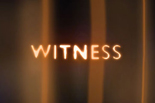
Justice Seekers
One couple hopes to take action against high-profile Rwandan exiles, alleged to have been deeply complicit in crimes.
Twenty years on, the Rwandan genocide runs the risk of fading from the West’s collective consciousness. For those who lived through the 1994 massacre of 800,000 ethnic Tutsis, however, survivors’ guilt, nightmarish memories, and the psychological need for closure remain strong.
Dafroza Gauthier lost her extended family in the massacre and was lucky to escape Rwanda alive. She and her husband Alain have spent years carefully collating and recording first-hand testimony against the men and women alleged to have been among the leading figures in Rwanda’s nightmare.
Finally their struggle has borne fruit: in early 2014, Pascal Simbikangwa, who was the head of central intelligence in Rwanda in 1994, stands trial in Paris on charges of complicity in genocide, and complicity in crimes against humanity. The trial marks a huge step forward in France’s official stance over the genocide, and it is occurring in no small measure because of the Gauthiers’ determination.
For many survivors and observers, the reluctance of successive French administrations to take action against alleged perpetrators residing in France is inexplicable. The Simbikangwa trial is historic, marking an acknowledgement — not yet an apology, of the faults of previous French policy, but it is only the first step on the road to rectifying wrongs.
Once the Simbikangwa trial is concluded, the Gauthiers hope that the authorities will take action against other high-profile Rwandan exiles alleged to have been deeply complicit, among them Agathe Habyarimana, widow of the former president, and Wencelas Munyeshaka, priest of the infamous St Famille Church, Kigali.
| Filmmaker’s view |
By Antonio Ribeiro
The 1994 Rwandan genocide has undoubtedly made its mark as one of the darkest episodes of the 20th century, when hundreds of thousands of men, women and children — mainly Tutsis, were systematically killed in cold blood.
When I first met the Gauthiers — Alain, a school teacher, and Dafroza, a chemist — I was struck by their tenacity and almost blind perseverance in chasing those who were alleged to have been involved in the Rwandan genocide and living on French soil. Without a legal background, the couple were just two ordinary citizens.
The film was an opportunity to document a true battle of David and Goliath, where Alain and Dafroza were fighting for justice in a nation where silence about its role in supporting the regime of President Juvenal Habyarimana has reigned. France is alleged to have played a pivotal role in arming and training the Rwandan army.
Whilst our film focuses mainly on the build-up to the trial of Pascal Simbikangwa, we felt it important to introduce the audience to two other individuals: Wenceslas Munyeshiaka and Agathe Habyarimana. Munyeshiaka is a priest who was in charge of St Famille church in Kigali outside of which many were raped and killed. The French authorities first opened an investigation into his alleged complicity in the genocide in 1995. An indictment against him was issued by the International Criminal Tribunal for Rwanda in 2005. Fr Munyeshyaka still works as a priest in a parish in Gisors, Normandy. Agathe Habyarimana, widow of President Juvenal Habyarimana, has lived in France since April 1994, though she had been denied residency papers by the French authorities.
From a historical perspective, the work of the Gauthiers will have far-reaching consequences beyond the pursuit of justice for the victims of the genocide. Their work will contribute to exposing French involvement, both political and military.
Another parallel the film attempts to draw is the juxtaposition between the Holocaust and the Rwandan genocide — in effect, the two greatest tragedies of the 20th century.
While the Holocaust is now firmly embedded in public consciousness as the Holocaust of the Jews, it took almost 20 years for it to be recognised as such, mainly after the trial of Adolf Eichemann in Israel. It has taken France a similar length of time to recognise the genocide of the Tutsis of Rwanda.
As a film-maker, to do justice to the magnitude of such a topic, we wanted to give the film an epic quality, reflected in the cinematography and in the musical score, composed especially for the film.
 |
| In Pictures |
Justice Seekers can be seen from Wednesday, April 9th, 2014 at the following times GMT: Wednesday: 2000; Thursday: 1200; Friday: 0100; Saturday: 0600. Click here for more Witness films. |
